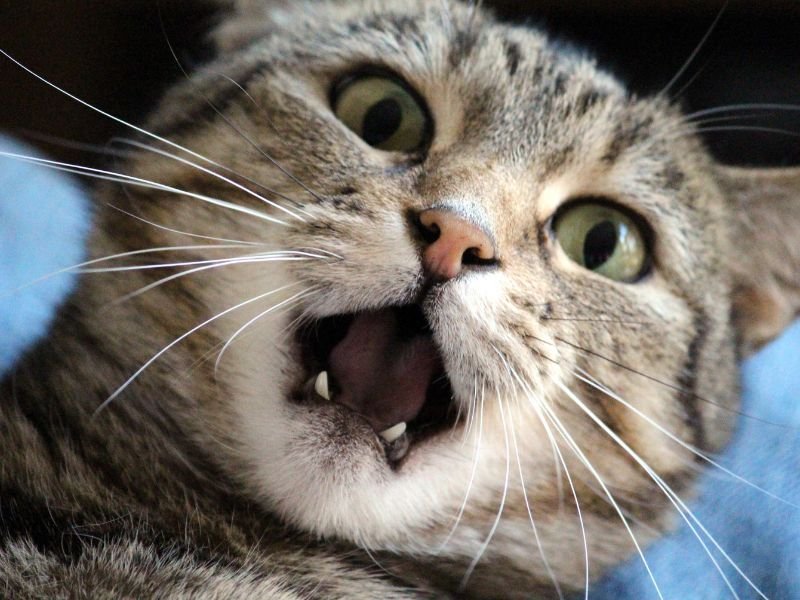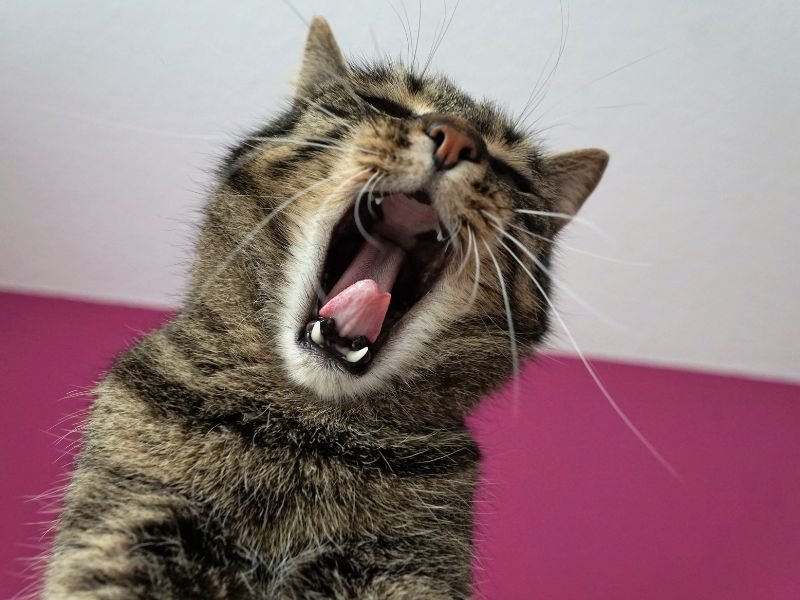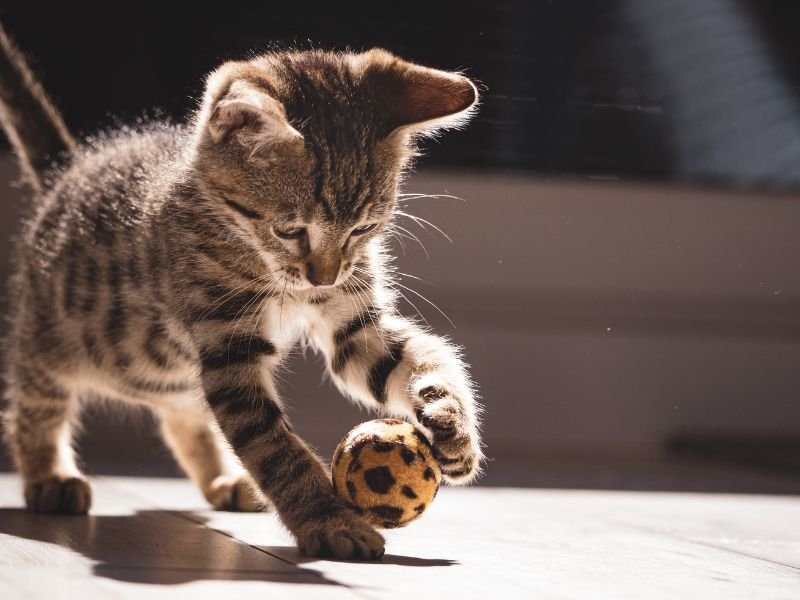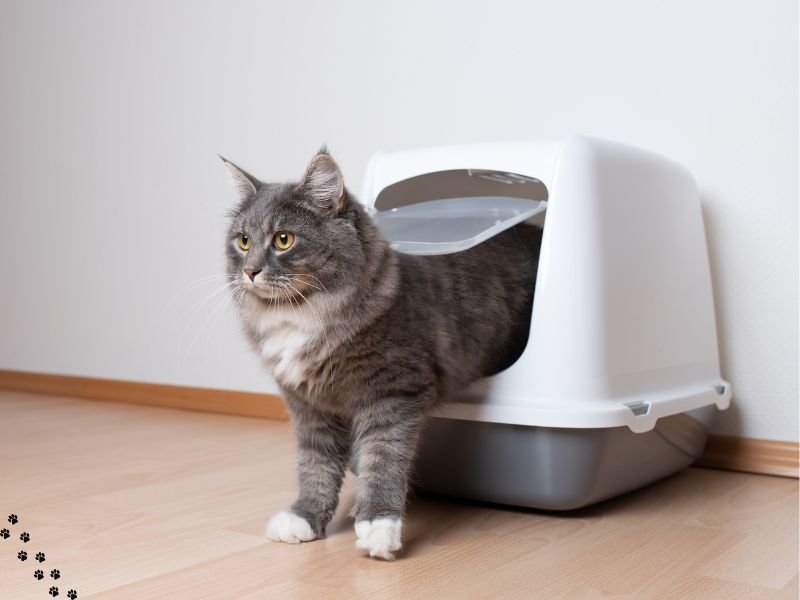When we think of our feline friends, we often imagine them lounging in sunshine or playfully batting at toys.
But beneath their seemingly carefree exteriors, cats can experience stress just like humans.
Whether it’s caused by a change in routine, a new addition to the family, or a move to a different home, stress can have a profound impact on our beloved pets.
In fact, stress-related illnesses are not uncommon in cats and can sometimes lead to serious health issues, even death.
In this article, we will explore the question: can cats die from stress?
It’s essential for every cat owner to understand the effects stress can have on their furry companions and, more importantly, learn how to alleviate their stress to ensure a long and fulfilling life for their feline family members.
Table of Contents
- Understanding the Dangers: Can Cats Die From Stress?
- Recognizing the Signs: Key Indicators of Stress in Cats
- Unveiling the Risks: How Chronic Stress Can Impact a Cat’s Health
- Unseen Consequences: The Impact of Stress on Cat’s Immunity and Lifespan
- Managing Feline Stress: Effective Strategies for Preventing and Alleviating Stressors
- When and How to Consult a Veterinarian for Stress-related Issues in Cats
- FAQs About Can Cats Die From Stress
- Conclusion
Understanding the Dangers: Can Cats Die From Stress?
While it may seem unlikely, cats are indeed susceptible to health risks from chronic stress. Just like humans, our feline companions can experience emotional and psychological turmoil that can profoundly impact their well-being.
Although stress alone may not directly cause death in cats, it can lead to severe health problems that, if left untreated, may ultimately result in a shortened lifespan. Understanding the dangers of stress in cats is essential for responsible pet owners.
When cats face stressors in their environment, their bodies respond with a surge of stress hormones, such as cortisol. In small doses, these hormones can help cats cope with challenging situations.
However, prolonged exposure to stress can lead to a dysregulation of these hormones, disrupting the body’s delicate balance. This imbalance can manifest in a variety of physical and behavioral symptoms, impacting the cat’s overall health and longevity.
Stress can weaken a cat’s immune system, making them more susceptible to various illnesses and infections. It can also exacerbate existing health conditions, such as respiratory problems or gastrointestinal disorders.
Additionally, chronic stress may cause cats to engage in destructive behaviors, develop aggression issues, or experience weight loss due to loss of appetite.
These stress-induced health problems can be severe and, if left untreated, could eventually lead to a decline in the cat’s quality of life and potentially shorten its lifespan.
Recognizing the Signs: Key Indicators of Stress in Cats
In order to address the question of whether cats can die from stress, it is crucial to first understand how to recognize the signs of stress in our feline companions.
Cats, being sensitive creatures, can manifest their stress in various ways. By familiarizing ourselves with these key indicators, we can intervene early and prevent them from suffering the long-term consequences of chronic stress.
Changes in Eating Habits
One of the most common signs of stress in cats is a change in their appetite. While some cats may lose interest in food altogether, others may exhibit increased or decreased eating.
Keep an eye out for any sudden changes in your cat’s eating habits, such as refusing to eat or overeating.
Alterations in Sleeping Patterns
Cats are known for their fondness for sleep, so any significant changes in their sleep patterns, such as excessive sleeping or insomnia, could be indicative of stress. Keep track of how often and for how long your cat sleeps, and if you notice any unusual variations, it may be a sign of stress.
Excessive Grooming
While grooming is a typical behavior for cats, excessive grooming beyond their usual routine can be a sign of stress. Cats often groom themselves as a way to cope with stress, so if you notice that your cat is constantly licking, biting, or scratching their fur, it may be a sign that they are feeling overwhelmed.
Unveiling the Risks: How Chronic Stress Can Impact a Cat’s Health
Chronic stress can have severe consequences on a cat’s overall health and well-being. While stress is a natural response to certain situations, prolonged exposure to stressors can lead to a variety of health problems in our feline companions.
It is vital for cat owners to understand the potential risks and take proactive steps to minimize stress in their cats’ lives.
Physical Health Issues
Chronic stress can weaken a cat’s immune system, making them more susceptible to various illnesses and infections.
Cats experiencing prolonged stress may start exhibiting physical symptoms such as loss of appetite, digestive issues, excessive grooming, and changes in weight.
They may also be at a higher risk of developing urinary tract disorders, such as feline idiopathic cystitis, which can be exacerbated by stress.
Behavioral Changes
Just like humans, prolonged stress can lead to behavioral changes in cats. They may become more aggressive, and timid, or begin displaying destructive behaviors like scratching furniture or excessively meowing.
Stress can also cause litter box problems, where a previously well-trained cat may start urinating outside the litter box as a result of anxiety.
These behavior changes not only impact the cat’s mental well-being but can also strain the bond between the cat and its owner.
It is important to note that chronic stress can impact different cats in different ways. While some cats may be more resilient to stress, others may be more vulnerable.
Understanding the potential risks and being proactive in managing stress can significantly contribute to the overall health and longevity of our feline companions.
Unseen Consequences: The Impact of Stress on Cat’s Immunity and Lifespan
Understanding the hidden effects of stress on a cat’s health is crucial for every cat owner. While it may seem like a temporary state of discomfort, chronic stress can have severe consequences for a cat’s immunity and overall lifespan. This section will shed light on how stress can silently affect a cat’s well-being.
Suppressed Immune System
One of the major unseen consequences of stress in cats is the suppression of their immune system. When a cat experiences chronic stress, the body produces excess amounts of stress hormones, such as cortisol, which can inhibit the proper functioning of the immune system.
This weakened immune response makes them more susceptible to infections, and diseases, and can hinder their ability to recover from illnesses.
The suppressed immune system can lead to a variety of health issues, including respiratory infections, gastrointestinal problems, and even urinary tract infections.
It’s important for cat owners to be aware that a seemingly healthy cat may be more vulnerable to illnesses due to the ongoing stress they may be experiencing.
Potential Reduction in Lifespan
Stress can also have a significant impact on a cat’s lifespan. Long-term stress has been linked to the development of chronic conditions, such as heart disease, diabetes, and autoimmune disorders, which can ultimately shorten a cat’s life expectancy.
Additionally, the increased risk of infections and delayed healing mentioned earlier can further contribute to a cat’s overall decline in health and longevity.
It’s essential for cat owners to prioritize minimizing stress in their cats’ lives to ensure they have the best chance at a long and healthy life.
Managing Feline Stress: Effective Strategies for Preventing and Alleviating Stressors
In order to ensure the well-being of our feline friends, it is crucial to understand how to effectively manage their stress levels. By taking preventive measures and implementing stress-alleviating strategies, we can create a harmonious environment for our furry companions.
Here are some practical tips to help prevent and alleviate stressors in cats:
Create a Safe and Stimulating Environment
Cats thrive in an environment that provides both safety and mental stimulation. Ensure that your home is equipped with hiding spots, scratching posts, and interactive toys to keep your cat engaged and entertained.
Maintain a Consistent Routine
Cats are creatures of habit, and maintaining a consistent routine can help reduce stress. Establish regular feeding times, play sessions, and designated quiet areas for your cat to retreat to when they need some alone time.
Provide Vertical Space
Cats are natural climbers and feel secure when they have access to high perches. Install cat trees or shelves where your cat can observe their surroundings from above, helping them feel more in control and less stressed.
Minimize Exposure to Stressful Stimuli
Identify potential stress triggers in your cat’s environment and take steps to minimize their exposure. This may include reducing loud noises, avoiding sudden changes in the household, or providing a safe space where they can retreat during stressful events.
Introduce Regular Exercise
Physical exercise is essential for cats to release pent-up energy and reduce stress. Engage your cat in regular play sessions using toys like feather wands or laser pointers to provide mental and physical stimulation.
Practice Positive Reinforcement
Reward your cat with treats or affection when they display calm and relaxed behaviors. This positive reinforcement can help reinforce a sense of security and encourage them to engage in desired behaviors.
Consider Pheromone Therapy
Pheromone diffusers or sprays that mimic a cat’s natural calming pheromones can be effective in reducing stress. These products can create a calming atmosphere and help cats feel more secure in their surroundings.
By implementing these effective strategies, you can greatly reduce the stressors in your cat’s life and contribute to their overall well-being.
However, it is important to remember that each cat is unique, and it may take time and patience to find the best approach for managing their stress.
Should you have concerns about your cat’s stress levels or need further guidance, it is always advisable to consult a veterinarian for expert advice and support.
When it comes to managing stress-related issues in cats, seeking professional help from a veterinarian is crucial.
While some cat owners may try to alleviate stress on their own, it is important to remember that professional guidance can ensure the best outcome for your feline friend.
Here are some key points to consider when deciding to consult a veterinarian for stress-related issues:
- Recognizing the signs: It is essential to be aware of the signs of stress in cats. These can include excessive grooming, loss of appetite, litter box avoidance, aggression, and withdrawal. If you notice any of these behaviors persisting over time, it may indicate chronic stress, and seeking veterinary advice is highly recommended.
- Understanding the underlying causes: A veterinarian will be able to assess the root causes of your cat’s stress. They will consider various factors such as changes in the environment, lack of socialization, conflicts with other pets, or previous traumatic experiences. By identifying these triggers, the veterinarian can provide tailored recommendations to alleviate the stressors.
- Developing a customized treatment plan: A veterinarian will work with you to develop a treatment plan specific to your cat’s needs. This might include environmental modifications, behavioral therapy, the introduction of calming pheromones, or medications when necessary. They will also provide guidance on gradual desensitization techniques to help your cat adapt to stressors more easily.
It is important to remember that seeking veterinary help for stress-related issues in cats should not be delayed.
Chronic stress can have severe implications on a cat’s physical and mental well-being, and early intervention is key to preventing further complications.
By working closely with a trusted veterinarian, you can ensure your cat receives the proper care and support to overcome stress-related challenges and live a happier, healthier life.
FAQs About Can Cats Die From Stress
How does stress affect cats?
Stress can have various negative effects on cats, including digestive issues, changes in behavior, decreased appetite, and increased susceptibility to illness.
Can a cat get sick from stress?
Yes, prolonged stress can weaken a cat’s immune system, making them more susceptible to developing illnesses and infections.
What are the signs of stress in cats?
Common signs of stress in cats include excessive grooming, aggression, hiding, loss of appetite, changes in litter box behavior, excessive vocalization, and increased sleep.
Can a cat die from anxiety?
While anxiety itself may not directly cause death in cats, it can lead to other health complications, such as reduced immune function or an increased risk of certain diseases, which, if left untreated, can ultimately be life-threatening.
How can I reduce my cat’s stress?
To help reduce a cat’s stress levels, provide a calm and predictable environment, create hiding spots, offer quality playtime, establish a routine, use pheromone diffusers, and consult with a veterinarian for additional guidance.
Conclusion
Excessive or prolonged stress can have detrimental effects on cats, making them more susceptible to various health issues.
While stress itself may not directly cause death, it can weaken their immune system and lead to other complications that could potentially be life-threatening if left untreated.
It is essential for cat owners to recognize and address signs of stress and provide proactive measures to reduce stress levels in their feline companions to ensure their overall well-being and longevity.











